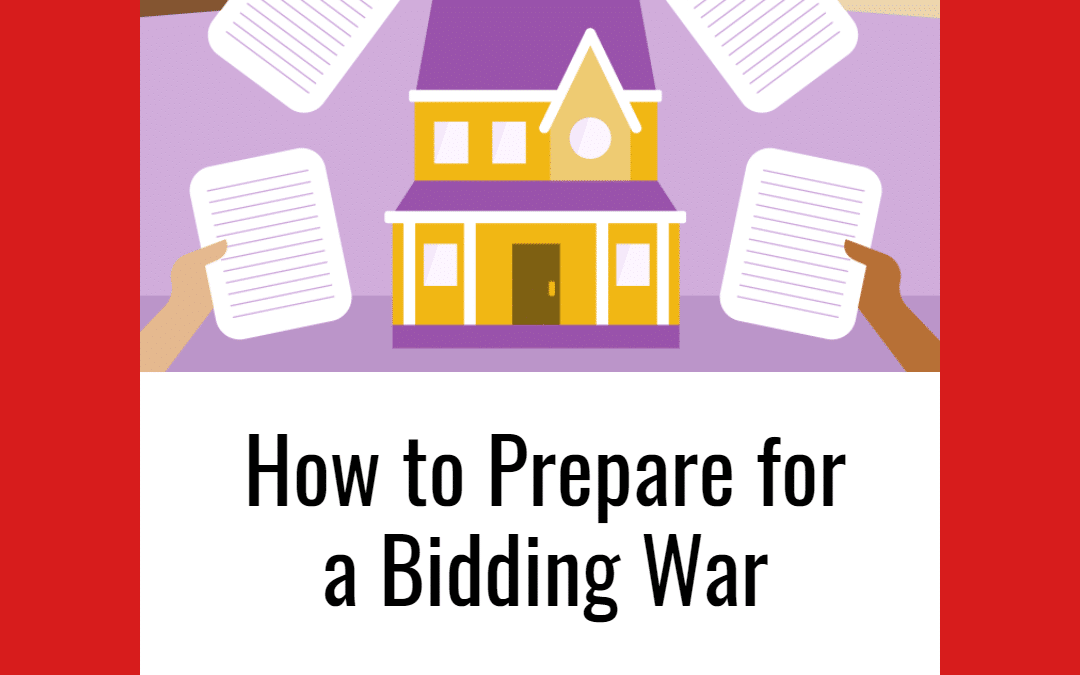How to Prepare for a Bidding War [INFOGRAPHIC]
Some Highlights
- With so few houses available on the market today, prepare for a bidding war. It is essential for prospective homebuyers to know the stakes.
- From pre-approval to making your best offer, here are three tips to make sure you can act quickly and confidently when you find the perfect home.
- Let’s connect today to be sure you have the guidance you need as the competition for homes heats up this season.
- Other tips to prepare for a bidding war:
Be ready to show your pre-approval
Sellers are looking for strong buyers who are going to see a contract through to the end. To let them know how serious you are, prepare for a bidding war… it helps to have a pre-approval from your lender clearly stating that you’ll be able to borrow enough money to purchase the house. Make sure that the pre-approval document you show is specific to the property in question (your lender will be able to draft a letter for you; you’ll just have to give them a heads up).
- If your goal is winning a bidding war on a house where there is just you and another potential buyer and you can easily present your pre-approval, the seller is going to be more inclined to go with the sure thing.
Increase the amount you’re willing to put down
If you’re up against another buyer or buyers, it can be incredibly helpful to increase your down payment commitment. A higher down payment means less money will be required from the bank, which is ideal if a bidding war is pushing the price above and beyond what it might appraise for.
In addition to a verbal promise to increase your down payment, back up your claim with financial proof. Presenting documents such as pay stubs, tax forms, and your 401(k) balance shows that not only are you prepared to put more down, but you also have the funds to do it.
Waive your contingencies
Contingencies are certain things that must be met in order to close a deal on a property. If they’re not met, the buyer is allowed to back out without losing any money.
- By waiving your contingencies—for example, your financial contingency (an agreement that the buyer will only buy the property if they get a large enough loan from the bank) or your inspection contingency (an agreement that the buyer will only buy the property if there aren’t any dealbreaker issues found during the home inspection)—you show just how badly you want to move forward with the deal. It is still possible to back out after waiving your contingencies, but you’ll lose your earnest money.
- There is a risk in waiving contingencies though, as you might imagine. Your contingencies give you the wiggle room you need as a buyer to renegotiate terms and price. So if you waive your inspection contingency and then find out during inspection that the home has serious foundational issues, you’re either going to have to sacrifice your earnest money or pay for expensive repairs once the title has been transferred. However, waiving one or more contingencies in a bidding war could be the extra push you need to get the house.
- You just have to make sure the risk is worth it.
Pay in cash
This obviously isn’t going to apply to everyone, but if you have the cash to cover the purchase price, offer to pay it all up front instead of getting financing. Not only are you eliminating the need for a third party to get involved in the deal, you’re also showing the seller that you mean business. There’s a risk any time a lender has to get involved—when you eliminate their presence, you eliminate the risk. Again though, very few standard buyers are going to have the necessary funds to buy a house outright. If this option doesn’t apply to you, skip it.


![How to Prepare for a Bidding War [INFOGRAPHIC] | MyKCM](https://files.mykcm.com/2020/10/15140756/20201016-MEM-1046x2827.png)
